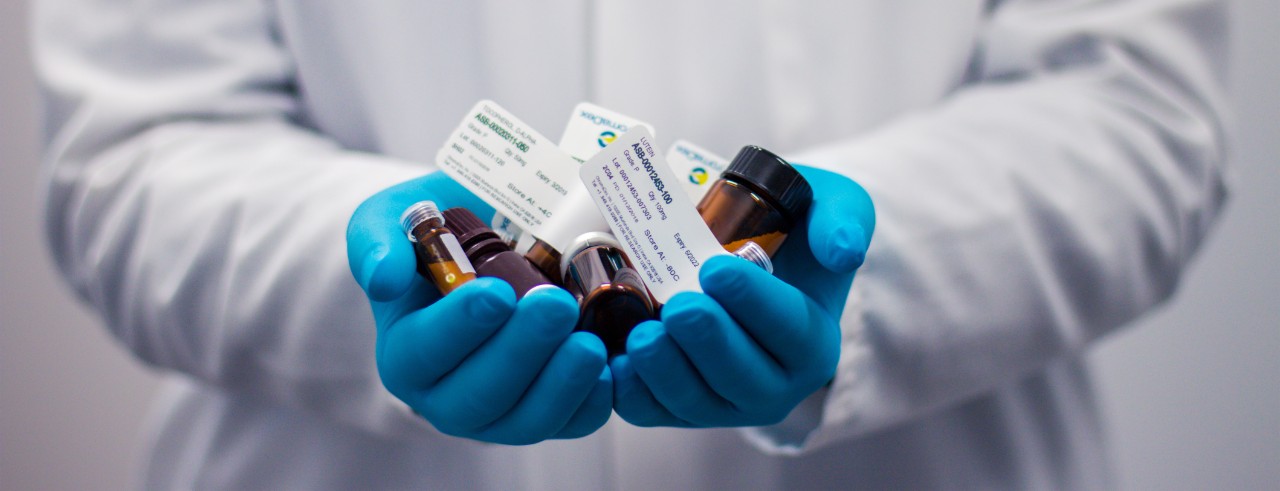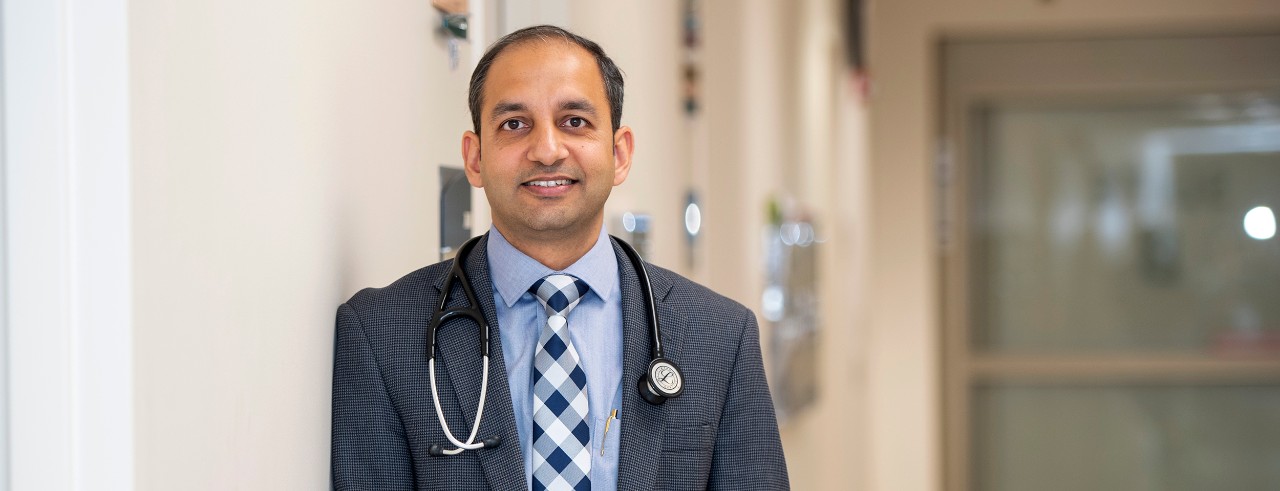
UC researcher focuses on personalized cancer care
Davendra Sohal focuses on precision medicine for GI cancers and the creation of new clinical trials
Dr. Davendra Sohal says if there’s a new treatment worth testing, he’ll try it.
The associate professor at the University of Cincinnati and medical oncologist with UC Health who specializes in personalized medicine and clinical trials for gastrointestinal cancers says experimental therapies are the hope for better treatments tomorrow.
“Clinical trials come in all shapes and sizes,” Sohal says. “We just have to find the right fit for each individual patient.”
Personalized medicine, sometimes called precision medicine, holds great promise in cancer treatment. Since there are so many variants to cancer — truly, no two tumors are alike — Sohal says his team at UC, as well as researchers across the globe, are focusing on tailoring treatments to the individual, while also looking for other, novel treatments to add to the list of choices.
“It’s like a menu in a restaurant,” he says. “We are moving away from the prix fixe menu, standard of care for every patient, and are moving toward an a la carte menu, where we select different methods of treatment based on the individual tumor genes.”

Dr. Davendra Sohal, who is new to the university, came to Cincinnati in October after being at the Cleveland Clinic Taussig Cancer Center, where he served as director of the clinical genomics program. At UC, his charge is to grow the already robust clinical trials program, particularly in Phase I, investigator-initiated trials, and create even more treatment options for physicians and researchers to try. Photo credit: Colleen Kelley / UC Creative Services
Sohal points out the difference between personalized oncology and the personal genetics arenas; he and his team at UC look at the genes of tumors — the pathways, cells and molecules which caused its formation and keep it alive. They take the biopsied tissue from the tumor and send it to a specialized lab to determine its makeup, helping them determine the next best steps in treatment. Sohal's work is part of the innovation agenda in President Neville Pinto's Next Lives Here strategic direction.
“We want to see what went wrong to cause the cancer to form and then figure out what drug or what therapy we have available that can target and treat it, for that particular tumor in that particular person,” he says. “This could be an approved drug or maybe an investigational drug that is used in other cancers but may benefit this patient who has another type of cancer.”

Dr. Davendra Sohal. Photo credit: Colleen Kelley / UC Creative Services
Sohal, who is new to the university, came to Cincinnati in October after being at the Cleveland Clinic Taussig Cancer Center, where he served as director of the clinical genomics program. He says he is very excited about all the possibilities here — the many scientists in the UC system, specialists in multidisciplinary teams and a large geographic area to partner with community physicians. At UC, his charge is to grow the already robust clinical trials program, particularly in Phase I, investigator-initiated trials, and create even more “a la carte” items for physicians and researchers to try.
“We are already using a lot of targeted therapies, but we want to find more,” he says. “More options are always better.”
Phase I clinical trials are the first step in testing therapies in humans; they are trials intended to evaluate safe dosages, the best methods of administration of a therapy and frequency of administration. These types of trials typically include less than 30 people and are administered in a closely monitored setting where patients can be observed and followed. UC is the only center within 100 miles of Cincinnati to offer an early stage drug trial program.
Sohal says larger, national trials are the final test of new approaches and drugs for cancer treatment. He along with Dr. Syed Ahmad, UC professor of surgery and chief of the surgical oncology division and a UC Health surgical oncologist, are part of an ongoing study to assess how chemotherapy before surgery in pancreatic cancer patients may improve outcomes. Current standard of care starts with surgery.
Instead of giving a drug to everyone that only works for 30% of the population, we’re doing the work ahead of time, sparing the other 70% from enduring a treatment that will not work for them.
Dr. Davendra Sohal associate professor at the University of Cincinnati and medical oncologist with UC Health
“This could potentially change the way we treat patients, which is exciting,” Sohal says. “We’re also studying new drugs for cancer that has spread — we want to find the best, individualized therapy with the least side effects for each patient. Instead of giving a drug to everyone that only works for 30% of the population, we’re doing the work ahead of time, sparing the other 70% from enduring a treatment that will not work for them.”
Sohal adds that the team approach to care, which also includes working with community doctors to put their patients on clinical trials, is what brings success.
“Personalized oncology and treatment offered through these innovative trials are how we make progress,” he says. “It’s how we move the needle.”
To find out more about clinical trials that are available or your eligibility, call 513-584-7698.
Featured photo is courtesty of Unsplash.
Related Stories
Study traces evolutionary origins of an important enzyme complex
July 9, 2025
MSN highlighted University of Cincinnati Cancer Center research published in Nature Communications that traced the evolutionary origins of the PRPS enzyme complex and learned more about how this complex functions and influences cellular biochemistry.
Murals boost Cincinnati’s vitality, community development
July 9, 2025
Murals have a social and economic impact, says a new study by Hyesun Jeong, assistant professor of urban design in UC's College of Design, Architecture, Art, and Planning.
Hoxworth employees help pen latest edition of textbook widely...
July 8, 2025
Hoxworth Blood Center, University of Cincinnati, is proud to share that four apheresis employees are now published authors. Caroline Alquist, MD, Krystol Weidner, Kelly Anstead and Jamie Swafford helped write Principles of Apheresis Technology, Eighth Edition.
